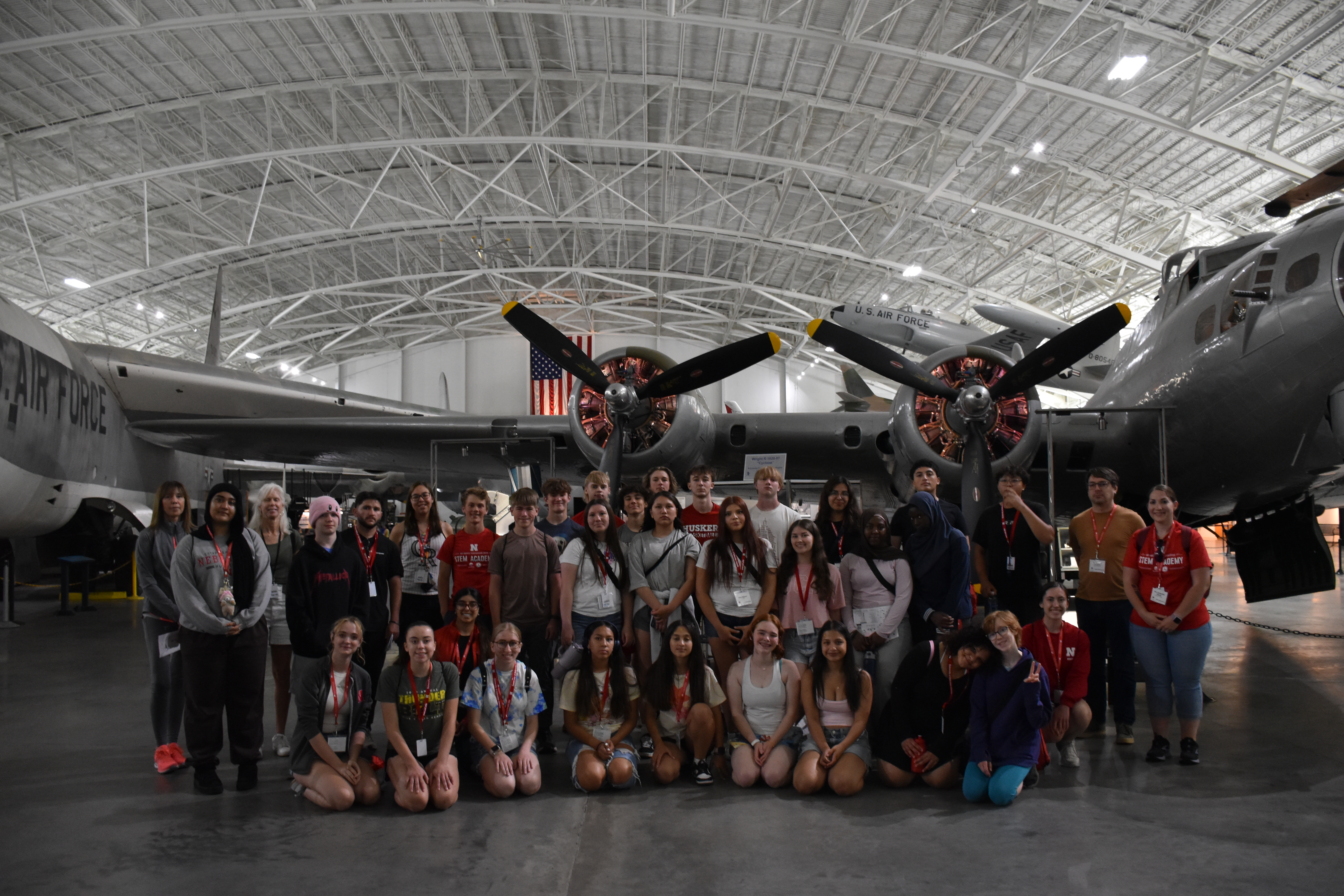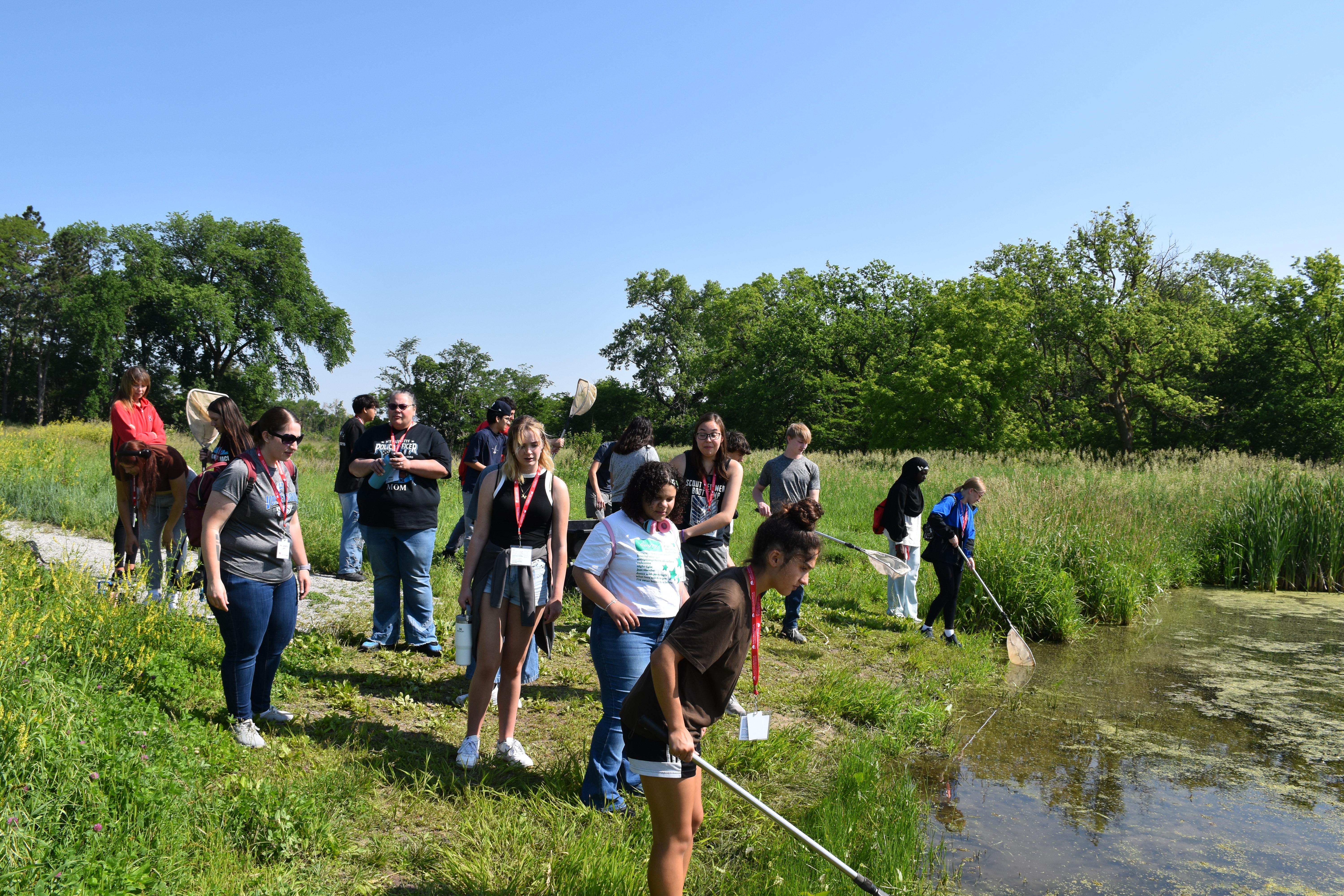At Nebraska Innovation Studio, high school student Heleen Khudhur pulled a welder’s mask over her head and grabbed the MIG welding gun and for a few minutes put a bead of molten metal across the targeted area.
It was the type of “hands-on” experience she had hoped for when signing up to attend the Mid-America Transportation Center 2025 STEM Academy, held June 8-12 at the University of Nebraska-Lincoln.
“I like working with my hands and I wanted to experience new things, like the stuff that college students in engineering and science get to experience,” Khudhur said. “I like the fact that this is a STEM academy and it’s helping you figure out what you want to do post-high school.
“Doing this has (helped) me think that I either want to be an engineer or a doctor or a lawyer.”
Since 2017, the Mid-America Transportation Center (MATC) has been helping Nebraska’s youth learn about careers in STEM fields – science, technology, engineering and mathematics –and the possibilities available in a college education, especially at UNL. Students from Federal Region 7 (Nebraska, Iowa, Missouri, Kansas) high schools are eligible to participate in the academy regardless of race, ethnicity, sex, tribal affiliation or other protected status.
This year, the five-day program’s activities reflected the possibilities of careers in STEM fields – work in chemistry labs, the maker spaces at Nebraska Innovation Studio, tours of Strategic Air Command and Aerospace Museum and Mahoney State Park near Ashland and the Spring Creek Prairie Audubon Center near Denton, and presentations from UNL faculty.
Rachael Wagner, assistant professor of practice in mechanical and materials engineering, gave students an overview of her journey from high school to playing a major role in designing a mini-robot, tested last year on the International Space Station, that would allow doctors to do surgery remotely with the patient in far-away locations, including outer space. Afterward, the students flocked to examine the robot.
Ezzat Haider, MATC's education and outreach manager, said the academy’s mission has always had two goals – increase opportunities for high school students by introducing them to STEM fields and provide growth to both the university and MATC.
“The purpose behind the academy, for the past nine years, has been to help high school students find their way toward college,” Haider said.

“(This year), we had 27 students from 13 communities across Nebraska – including Columbus, Winnebago, Pierce, Raymond – and in some of those places, there’s not a lot of chances for these kids to learn about STEM fields. That (experience) encourages the students to complete their education, hopefully here at the University of Nebraska, and motivate them toward what they want to do in the future.”
Michele Blackbird, a teacher and director of Indian education at Omaha Nation Public Schools in Macy, attests to the importance of the academy for Nebraska high school students.
Having attended every academy since it started in 2016, Blackbird has seen many past attendees’ outlook about their education and their futures improve. Experiencing the college environment, Blackbird said, was a key factor.
“It was very important to encourage our students, who historically have low numbers of attendance in college, to come and get the college experience take away some of the mysticism, some of the uncertainty and (take) a trial run,” Blackbird said. “They see what it's like to be in the dorms, but yet they have somebody from their own community who's a connection.
“They can network with each other and learn what things are out there for them, and a lot of our students in the past have wanted to return to the academy each year. Some have actually encouraged their cousins or their brothers and sisters to come and check it out. There’s one student that I brought to the academy who’s attending college here. I think that’s how the academy is very impactful.”
The 2025 academy had that same impact on at least one of the students – Lincoln High rising freshman Daviana Carnicle, who now sees a future that could include a college education closer to home.
“Hearing that I could get a college experience kind of with staying on campus and making new friends I just thought that sounded really interesting,” Carnicle said.
“I’ve always been interested in science; that's been something I've been truly good at. I was originally planning to go to college out of state, but seeing how everything works here in Lincoln, I might want to go to knowledge at UNL to study some sort of science.”





